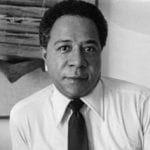 Sport
Sport  Sport
Sport  Animals
Animals 10 Strange Times When Species Evolved Backward
 Facts
Facts Ten Unexpectedly Fascinating Facts About Rain
 Crime
Crime 10 Dark Details of Australia’s Gruesome Unsolved Wanda Murders
 Humans
Humans 10 Unsung Figures Behind Some of History’s Most Famous Journeys
 Animals
Animals 10 Species That Refused to Go Extinct
 Weird Stuff
Weird Stuff 10 Weird Things People Used to Do at New Year’s
 Our World
Our World 10 Archaeological Discoveries of 2025 That Refined History
 Weird Stuff
Weird Stuff 10 Fascinating Facts You Might Not Know About Snow
 Miscellaneous
Miscellaneous Top 10 Things Crypto Was Supposed to Change & What Actually Did
 Sport
Sport The 10 Least Credible Superstars in Professional Sports
 Animals
Animals 10 Strange Times When Species Evolved Backward
 Facts
Facts Ten Unexpectedly Fascinating Facts About Rain
Who's Behind Listverse?

Jamie Frater
Head Editor
Jamie founded Listverse due to an insatiable desire to share fascinating, obscure, and bizarre facts. He has been a guest speaker on numerous national radio and television stations and is a five time published author.
More About Us Crime
Crime 10 Dark Details of Australia’s Gruesome Unsolved Wanda Murders
 Humans
Humans 10 Unsung Figures Behind Some of History’s Most Famous Journeys
 Animals
Animals 10 Species That Refused to Go Extinct
 Weird Stuff
Weird Stuff 10 Weird Things People Used to Do at New Year’s
 Our World
Our World 10 Archaeological Discoveries of 2025 That Refined History
 Weird Stuff
Weird Stuff 10 Fascinating Facts You Might Not Know About Snow
 Miscellaneous
Miscellaneous Top 10 Things Crypto Was Supposed to Change & What Actually Did
10 Authors You Read In School Who Were Secretly Terrible People
Grade school takes all the spice out of history and makes it seem like everyone in the past sat around drinking tea to the sounds of harpsichord music. English teachers, for example, usually don’t talk about the dark and dirty secrets of our favorite writers, but their lives are full of them. For some reason, there just seems to be something about writers that makes them dive right into every form of vice and debauchery imaginable.
Whether your teacher will tell you or not, most of the authors on your summer reading list led lives that would make Hugh Hefner blush. And those were the nice ones. A few of your teacher’s favorite writers were qualifiably horrible people.
10 George Orwell Sold His Friends Out To The Secret Service

The man who warned us about a grim future in which spies and secret police drag people away for having dangerous thoughts wasn’t exactly as staunch of a freedom-lover as he might seem. In real life, he was more of a part of Big Brother than he was against it.
Orwell kept a secret list of people he’d met who he thought were secret communist sympathizers. Anyone he met who seemed a little too favorable to the idea of social welfare got their name jotted down on Orwell’s blacklist.[1] And when he had enough names, he sent to the British Secret Service with a little note telling them: Never trust these people.
Orson Welles, Katherine Hepburn, Charlie Chaplin, and dozens of other major names showed up on Orwell’s list. As it turns out, Orwell might not have liked communism, but he wasn’t above a little thought-policing.
9 William Golding Tried To Rape A 14-Year-Old Girl
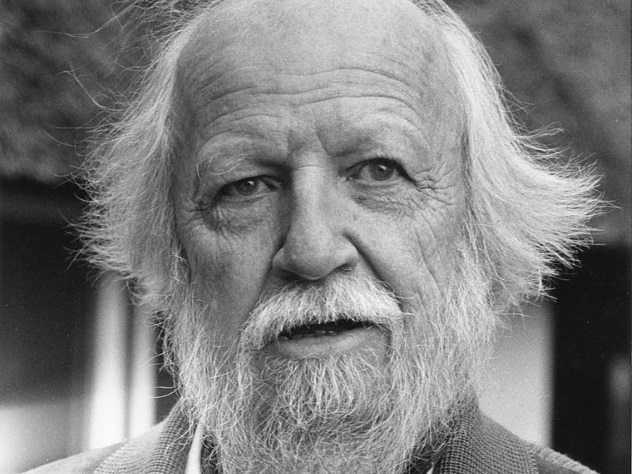
There was a reason the author of Lord of the Flies was so deeply acquainted with the darkness at the heart of young boys: His heart was about as dark as they come. Before he died, William Golding started writing a memoir that, if anything, might have been too honest. For one thing, he openly confessed to attempted rape.
When he was 18 years old, Golding was obsessed with a 14-year-old girl named Dora. He was so obsessed, in fact, that he lured her out into a field and tried to violently, physically force himself upon her. Young Dora had to beat him with her fists to get him to let her go. The second he loosened his grip, she ran for her life, while Goldin chased after her yelling, “I’m not going to hurt you!”
He wasn’t exactly repentant. Even as an old man writing his memoirs, Golding still slipped in all kinds of creepy language designed to justify what he’d done. She was just a child, he admitted, but she was “already sexy as an ape.”[2] He called her “depraved by nature” and said he knew that she “wanted heavy sex”—which is a pretty insane thing to believe about a young girl who ran away from you screaming.
8 David Foster Wallace Was An Abusive Stalker
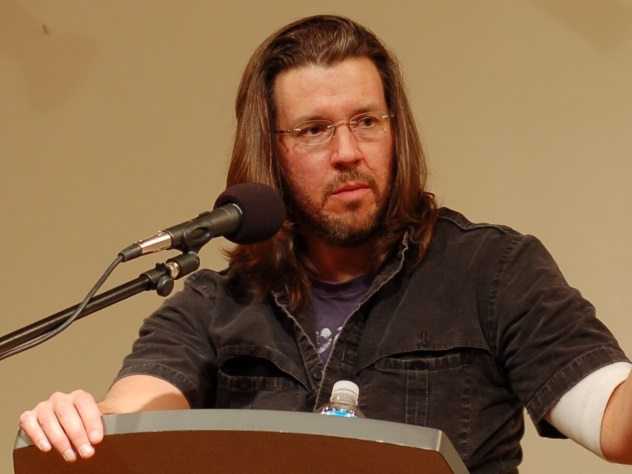
The author of Infinite Jest wasn’t exactly the world’s greatest boyfriend. He may have been able to write a good book, but he when put down his pen, he did some absolutely horrible things to women.
Mary Karr got the worst of it. She was the object of Wallace’s affections throughout the 1990s, a woman he fell madly in love with from the first moment he met her. When that kind of affection comes from a man like Wallace, though, it’s not a good thing.
Karr was married with children when they met, but Wallace tried to get her in bed anyway. When she didn’t immediately leave her husband for him, he went crazy. First, he went around telling people they were a couple, even though they weren’t. Then, he got a tattoo of her name on a heart and showed it to her husband. Finally, when none of that worked, he just yelled obscenities at her and punched his fist through her car window. At one point, he even tried to hire a hit man to kill her husband.[3]
It’s the behavior of a madman—but Karr must have had some issues, too, because instead of filing a restraining order, she ended up having an affair with the crazy guy stalking her.
Things didn’t get any better, though. Even when they were together, Wallace was insanely violent. He yelled at her and threw things at her. She still stayed with him, too, until, finally, after he smashed a coffee table by trying to throw it at her head, Karr decided it was time to look for a better boyfriend.
7 Mary Shelley Lost Her Virginity On Her Mother’s Grave
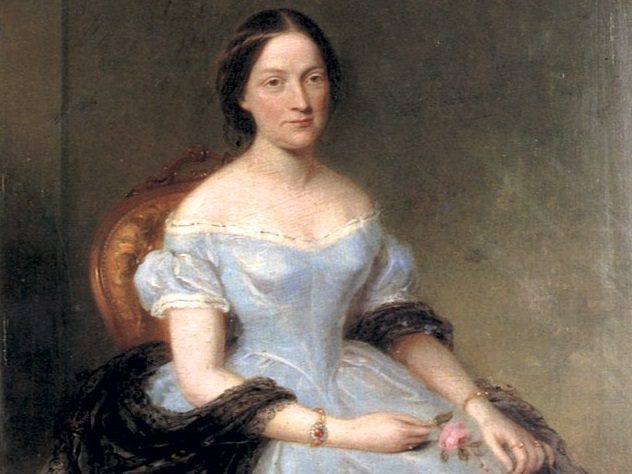
The life of Mary Shelley is a far creepier story than Frankenstein. It’s not something people often talk about, but Shelley was a bit of a strange bird. And by “strange,” we mean the “carried her dead husband’s heart around in a jar for 30 years” type of strange.
That’s weird—but the things she did while he was still alive were even weirder. Mary and Percy Shelley’s relationship started with them making love on top of her dead mother’s grave.
Apparently, the young Mary Shelley couldn’t think of any better place to lose her virginity than on top of the final resting place of the mother, who died giving birth to her. It’s a bit strange, though in her defense, her mother’s grave had already been the setting for a weirdly large amount of her formative moments. Her father taught her to read by having her trace the letters on her mother’s tombstone.[4] So if Shelley was a bit weird, it was in her family.
6 Victor Hugo Was Addicted To Prostitutes
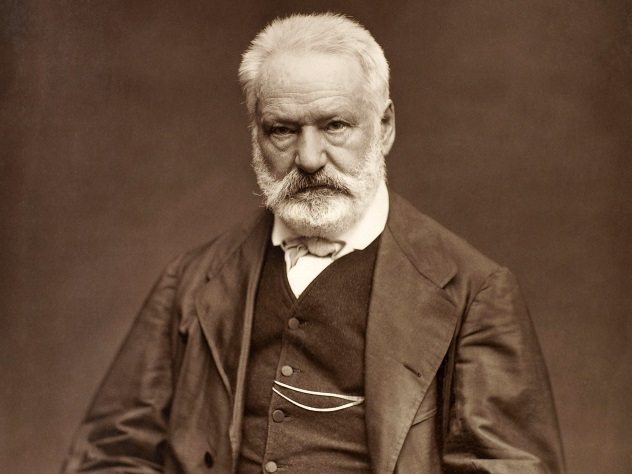
Today, when we think about the author of Les Miserables and The Hunchback of Notre-Dame, sex isn’t exactly what comes to mind. People who knew him personally, though, knew that sex was pretty much his whole life.
Victor Hugo’s sexual appetite was a thing of legend. It’s said that on the day he got married, he and his wife consummated their marriage nine times in a single night. It was how he lost his virginity, but after he’d tried it once, he refused to stop. In short time, he was having affairs with every woman who would have him.
His favorites seem to have been prostitutes and married women, and Hugo slept with a lot of them. According to his favorite mistress, between 1848 and 1850 alone, Hugo slept with 200 different women.[5]
Even old age didn’t slow him down. In last four months of his life, Hugo’s diary—which he filled with lurid details of his sexual exploits—mentioned eight separate women he’d slept with. And at that point in his life, he was 83 years old.
Every woman of the night in France knew him. They knew him so well, in fact, that on the day Hugo died, the brothels of Paris all shut down so that the prostitutes could pay their respects to their most famous customer.
5 Allen Ginsberg Was A Card-Carrying Member Of NAMBLA

Allen Ginsberg already has a place in history. His poem “Howl” challenged the very definition of literature, and his place among the Beat poets has captured the imaginations of generations of thinkers. But we usually try to not to mention his time with NAMBLA.
The North American Man/Boy Love Association is a group that campaigns to give adult men the legal right to have sex with young boys, and Allen Ginsberg was one of their most eager members. He insisted it wasn’t about pedophilia. NAMBLA, he said, was a “forum for reform,” and he joined it “in defense of free speech.”
The “reform” he wanted, though, was more than a little creepy. He wanted to legalize child pornography. He accused the government of an “incompetent linkage of pornography and violence.” He thought we should be more like the ancient Greeks, saying, “Intergenerational love was a social practice praised by philosophers.”
And he didn’t stop there—he also tried to convince people that there is “no universal consensus on ‘consent.’ ”[6] That might sound intellectual, but let’s be honest about what he meant. Coming from a member of NAMBLA, that’s just a fancy way of saying, “How do you know eight-year-olds aren’t asking for it?”
4 Ezra Pound Was A Fascist
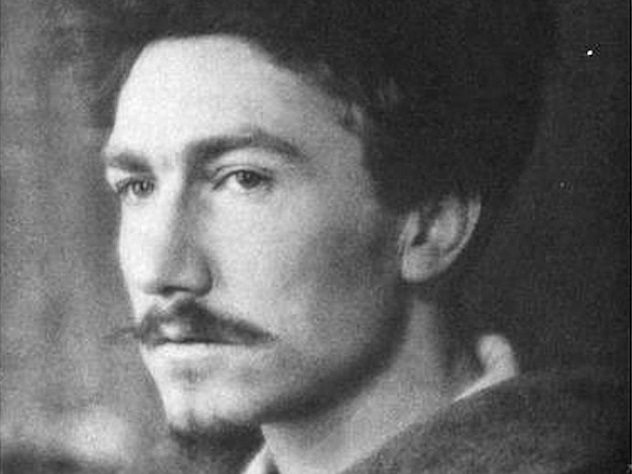
It’s no exaggeration to call Ezra Pound a fascist. We don’t mean that he was a little cranky or wanted things done his way—we mean that he was such an active supporter of the Axis that he ended up getting thrown in jail for treason.
Pound was obsessed with Mussolini.[7] Even though he was American, he was so impressed by the rise of fascism in Italy that he begged Mussolini to meet him in person. Eventually, Mussolini agreed, and Pound lavished him with gifts in appreciation.
When World War II started, Pound went on the radio and ranted about how Americans needed to stay out of the fascists’ way. He openly criticized America for siding against the Third Reich and then went into long rants saying that the Jews were responsible for every war.
He even wrote multiple poems about how great fascism is. His “Italian Cantos” are odes to the fascist fighting spirit, while his “Pisan Cantos” are full of rants criticizing the US Army for joining the war. By that point, though, he was just complaining. The “Pisan Cantos” were written behind bars, after Italian fascism had already fallen and Pound had been locked up for treason.
3 Flannery O’Connor Was Openly Racist
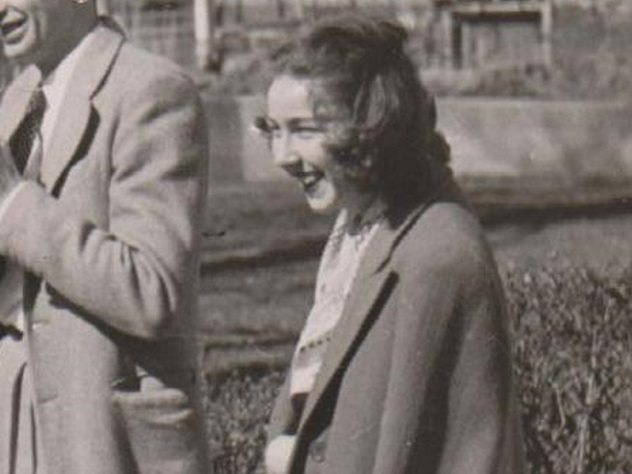
Flannery O’Connor’s short stories are complicated. Stories like “Everything That Rises Must Converge” tackled the changing world of the South during the Civil Rights Movement with such ambiguity that it was hard to tell whose side she was on: the people fighting for equal rights, or the racists?
There was no question about it, though, for the people who knew her. In private, Flannery O’Connor was open about it: She thought the Civil Rights Movement was ridiculous.
“About the Negroes, the kind I don’t like is the philosophizing prophesying pontificating kind,” O’Connor once told a friend. “Very ignorant but never silent.”[8]
O’Connor was full of jokes about Civil Rights. She would complain that the papers were “always yapping about racial justice” or joke about “local Negroes” trying to integrate the library. Once, when a friend left a grasshopper in her home, she joked that it “reminded me so much of the poor colored people in the jails that I let him out and fed him to a duck.”
In all fairness, though, she wasn’t just against Civil Rights. O’Connor just kind of hated everybody. The way she put it was: “I say a plague on everybody’s house as far as the race business goes.”
2 J.D. Salinger Was Obsessed With Teenage Girls
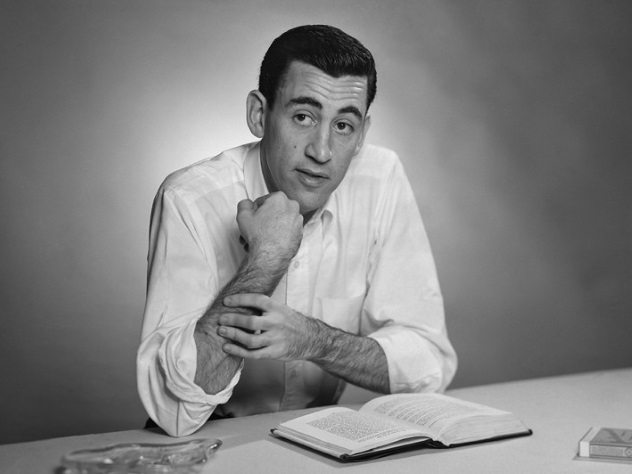
J.D. Salinger loved underage girls. That’s what his girlfriend Joyce Maynard said about him, anyway. And she might be a reliable source. When Salinger and Maynard started dating, she was 18 years old—and he was 53.
Maynard isn’t the only person who has come forward as one of Salinger’s teenage lovers. A woman named Jean Miller claims that she started dating J.D. Salinger when she was just 14 years old. Salinger, she says, spotted her reading Wuthering Heights at the pool and said, “Hi, how’s Heathcliff?”
The two ended up staying together for five years. To give Salinger credit, he waited until Miller was of legal age before sleeping with her. As soon as he did, though, he immediately left her life and never spoke to her again.[9]
According to Joyce Maynard, that was how Salinger operated—and not just with them but with other young girls who haven’t come forward, as well. “His was a seduction played out with words and ideas, not lovemaking,” she said. Technically, he wouldn’t actually break any laws, but he would spend years seducing young girls and telling them he loved them.
1 Norman Mailer Stabbed His Wife With A Penknife
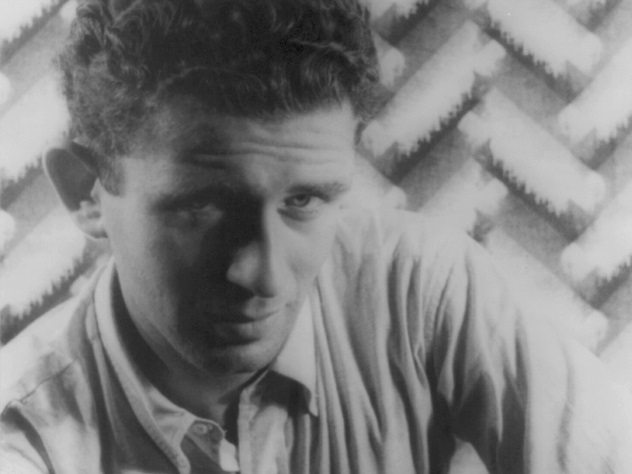
In the 1960s, Norman Mailer ran for mayor in New York City. It was a serious campaign—but any chances he had definitely went out the window when he stabbed his wife in the chest at a fundraiser.
Mailer had thrown a party for his candidacy, but he didn’t get the turnout he’d hoped for. Frustrated, he got drunk out of his mind and started challenging people to fights. He even got into a bare-knuckle fistfight with fellow author George Plimpton.
His wife eventually got fed up enough with Mailer that she started hurling insults at him. “Come on, you little f—t, where’s your cojones?” she yelled at him. “Did your ugly wh— of a mistress cut them off, you son of a b—?” She was just saying it to provoke him, but it worked. Mailer, in response, grabbed a penknife and jammed it into his wife’s chest, just barely missing her heart.
One of the guests tried to help her, but Mailer yelled, “Get away from her. Let the b— die.” Then he stormed out of the party and left her bleeding on the floor.
In the end, his conscience got the best of him. Mailer went back for his wife and took her to the hospital, where they saved her life, but it didn’t change what he’d done. Still, Mailer got away with everything. He joked later that, after stabbing his wife, people only treated him with “five degrees less warmth than I was accustomed to. Not fifteen degrees less—five.”[10]
For more of the juicy stuff your teachers never told you, check out Top 10 Facts You Wish You’d Learned In History Class and 10 R-Rated History Facts You Won’t Learn In School.








